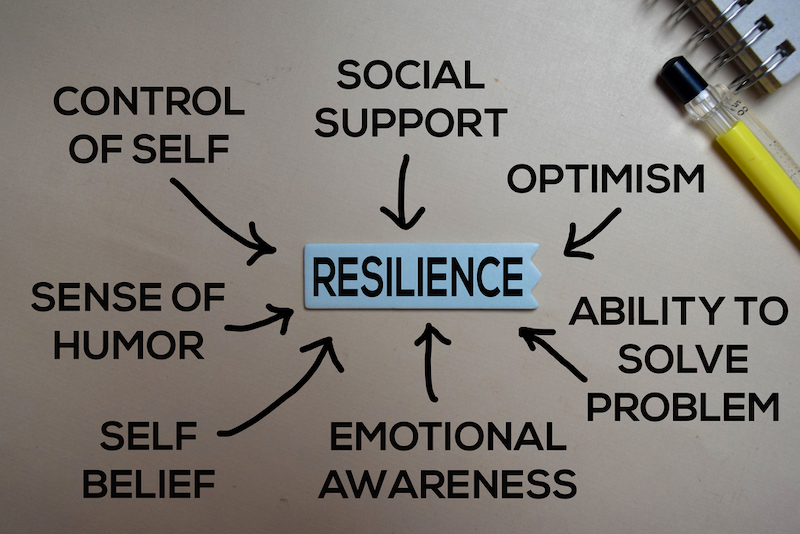Branded Content by Cosmic Press
In the past, people were a lot more likely to stay with the person they first married for their entire lives. However, times have changed, and keep changing, so today it’s not uncommon for married couples to separate, even after they’ve had children together. While this can certainly have some very serious negative effects on a child’s development and upbringing, it’s often the only way forward and can be the right choice in the long term.
In most cases of parents getting separated after they’ve had children together, one or both of them would eventually find a new partner, who will invariably become part of the children’s lives. This is what’s often referred to as a reconstituted family – a family where one or both of the partners have already been married before and have children from their previous marriage.
Nowadays, reconstituted families are a very common thing and are mostly accepted as something normal. Despite this, raising children in reconstituted families can be very challenging, as the relationship dynamics in such situations can be very delicate and must be navigated with finesse and care.
According to the California Health Interview Survey (CHIS), it has been noted that children in reconstituted families in California face unique challenges and dynamics. The survey data indicates that approximately 30% of children in California live in households with at least one stepparent, reflecting the prevalence of reconstituted families in the state. Moreover, research from the University of California, Los Angeles (UCLA) suggests that effective communication and mutual understanding between partners in blended families significantly contribute to the well-being and stability of children in these family structures. These statistics shed light on the complex landscape of raising children in reconstituted families in California and emphasize the importance of tailored support and resources for families navigating these circumstances.
Obviously, there are a ton of factors at play when it comes to reconstituted families and each instance will be different from the next. However, if you are in a relationship and you and/or your partner has children from a previous marriage, here are some basic guidelines to help you navigate the situation and allow the children to be raised in a healthy and stable environment.
Stepparents cannot replace biological parents
Although many people already know that, they often seem to forget about it once they become part of a reconstituted family. If you are a stepparent to your partner’s children and their other biological parent is still actively involved with the children’s upbringing, you must absolutely not get in the way of their relationship with the kids in any way. Even if the two biological parents are no longer together, they are still the people who should have the most control over how their children are being raised.
If you, as a stepparent, are noticing problems with your stepchildren’s behavior, it’s usually unwise to try to discipline them yourself, unless you already know that the specific dynamics in your reconstituted family allow for this type of approach. In most cases, a better approach would be to talk to your partner about your concerns, and ask them to address the disciplinary issue you’ve noticed.
Also, no matter what you do, do not try to undermine the authority of the other biological parent by trying to turn the kids against them, even if you think that he or she is a bad parent. Show patience and composure and try to lead by example rather than to vocally criticize the other parent in front of the kids.
Acknowledge the challenges of the situation
There’s no point in sugarcoating it – being a stepparent is oftentimes very difficult and the people who find themselves in such situations would oftentimes feel underappreciated and even unloved by their stepchildren. If you, yourself, are a stepparent, know that your partner’s children will almost certainly not feel the same affection and love towards you that they feel towards their biological mother or father, especially if you haven’t been a part of their lives since their earliest years. You may oftentimes feel that you are doing all the parenting work that a biological parent should do and yet aren’t shown any of the appreciation and love that you deserve.
However, you need to understand that it’s not the children’s fault. There are many reasons why they may not be showing you affection, such as feeling loyalty for their biological parents or fearing that if they get attached to you, they could experience the pain of separation a second time. Whatever the specific reason, though, the best thing you can do is to be patient and understanding of the children’s needs and emotions. You need to give them space and let them decide for themselves when they want to open up towards you. This sort of thing cannot be forced and usually, the harder you try to earn a child’s affection and love, the more you would be alienating it from yourself.
Communication between the partners
When it comes to solving any type of relationship obstacle (including raising children in a reconstituted family), the key ingredient is effective communication between the two partners. Whether you are the stepparent or not, you need to be able to talk openly and honestly with your significant other about the challenges associated with raising your children/step-children. The partners need to show understanding and patience both towards one another and also towards the children if they are to successfully maintain the delicate balance required in such situations.
You need to learn in order to improve
Bringing up children in reconstituted families is a complex subject – one that most people aren’t innately prepared to face head on. That is why the responsible thing to do is to take the time to learn about the correct approaches and best methods for navigating parenting in a reconstituted family, regardless of who is the stepparent in the relationship.
There are many ways to acquire the necessary information. For example, many people read high-quality books or reach out to specialists in the field. Also, another highly effective method is to take up an online parenting class, where you can learn about how to be an effective parent in a reconstituted family at your own pace. Regardless of what option you choose, it’s essential that you get informed and spend the necessary time and effort to learn how to be a better parent to your children/stepchildren, as this will have a huge long-term effect on their future development.
Branded content furnished by our promotional partners. The Daily Sundial editorial staff is not involved in its production. Content does not reflect the views or opinions of the editorial staff.








